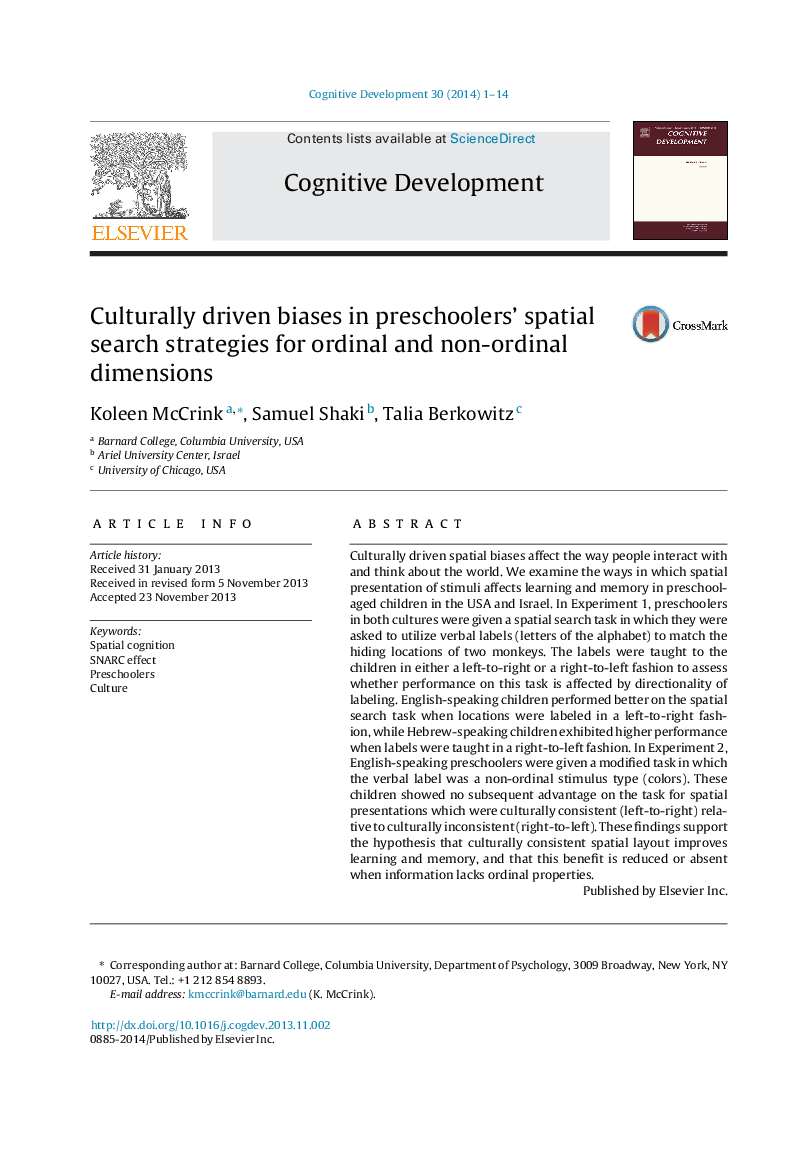| کد مقاله | کد نشریه | سال انتشار | مقاله انگلیسی | نسخه تمام متن |
|---|---|---|---|---|
| 916477 | 1473353 | 2014 | 14 صفحه PDF | دانلود رایگان |
• We test preschoolers who are exposed to different languages in a spatial search task.
• We examine whether learning ordinal and non-ordinal information in a manner consistent with their culture enhanced learning and memory of labels.
• Preschoolers link ordinal – but not non-ordinal – information with space before the onset of self-directed reading.
• This link is modulated by the reading directionality of the preschoolers’ cultures.
Culturally driven spatial biases affect the way people interact with and think about the world. We examine the ways in which spatial presentation of stimuli affects learning and memory in preschool-aged children in the USA and Israel. In Experiment 1, preschoolers in both cultures were given a spatial search task in which they were asked to utilize verbal labels (letters of the alphabet) to match the hiding locations of two monkeys. The labels were taught to the children in either a left-to-right or a right-to-left fashion to assess whether performance on this task is affected by directionality of labeling. English-speaking children performed better on the spatial search task when locations were labeled in a left-to-right fashion, while Hebrew-speaking children exhibited higher performance when labels were taught in a right-to-left fashion. In Experiment 2, English-speaking preschoolers were given a modified task in which the verbal label was a non-ordinal stimulus type (colors). These children showed no subsequent advantage on the task for spatial presentations which were culturally consistent (left-to-right) relative to culturally inconsistent (right-to-left). These findings support the hypothesis that culturally consistent spatial layout improves learning and memory, and that this benefit is reduced or absent when information lacks ordinal properties.
Journal: Cognitive Development - Volume 30, April–June 2014, Pages 1–14
